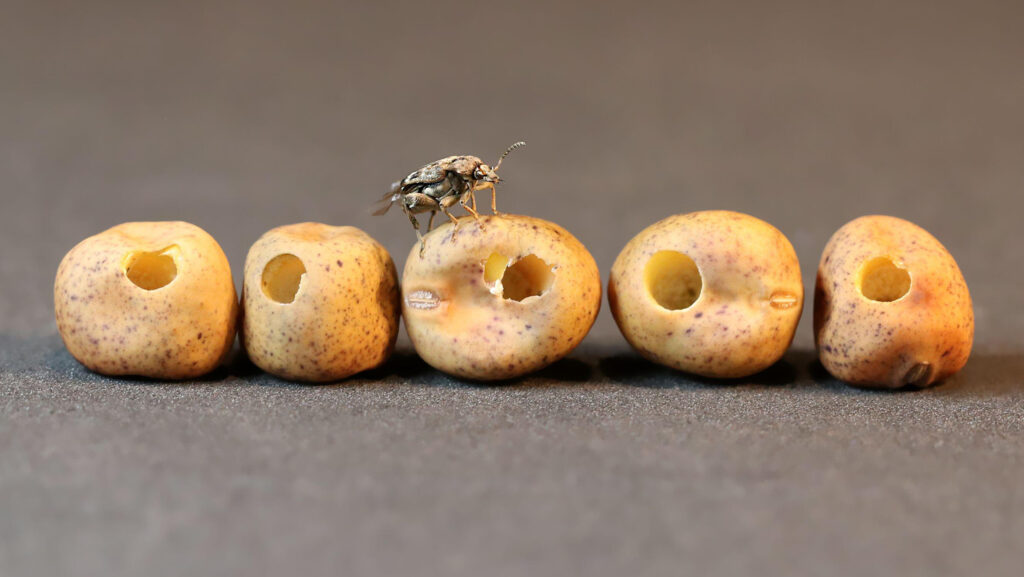Pea bruchid pest discovered for first time in UK crop
 © Alamy
© Alamy Pulse growers and traders are being urged to report any signs of insect holes in stored peas after the discovery of the first UK case of pea bruchid in a commercial crop grown in Cambridgeshire.
For many years, the Processors and Growers Research Organisation (PGRO) has been warning about the potential for pea bruchid (Bruchus pisorum) to become established in the UK.
The beetle is widespread in Europe and is a regular problem for growers in northern France.
With spring 2025 being warmer and drier than for many decades, it seems the ideal conditions arose for pea bruchid to complete its lifecycle in a UK crop, says the PGRO.
See also: How Birds Eye hopes to grow peas for another 60 years
The pest has a similar lifecycle to the closely related bruchid beetle that affects field beans.
Eggs are laid on young pea pods, larvae develop and mature within the grains, and holes are left in the harvested produce as adult bruchids emerge. The damage has a very significant negative impact on crop value.
As this is the first time the pest has been found in the UK, PGRO says it is important that the industry is aware of the problem and that action is taken to combat the pest and prevent its permanent establishment here.
To allow this pest to establish and proliferate in the UK would be extremely costly to the industry, particularly for those growing and marketing for human consumption.
Regional spread
It is likely, but not certain, that the distribution of the pest is currently limited. To begin to understand pea bruchid spread, PGRO has set up an incidence log and is asking growers and traders to inspect the produce of pea crops for pea bruchid damage and report it if any is found.
Reports can be quickly created using the PGRO app, recording the location of the crop grown, any images of the pest or damaged produce. Good images will ensure correct identification, as pea moth damage may occasionally resemble the damage caused by pea bruchids.
Future measures
PGRO is working with the trade to agree a plan of action to attempt to stop the adult pea bruchids from resuming their lifecycle in the spring of 2026. “The aim must be to prevent the adults from laying eggs next spring and to stop permanent pest establishment in the UK,” says PGRO.
A healthy crop will always start with good-quality, clean seed, so seed businesses and growers hoping to farm save for 2026 should be particularly alert.
PGRO seed advice
- The use of bruchid-free or fumigated seed is critical in controlling the spread of the pest in the UK
- All seed that is imported into the UK should be free of pea bruchid
- Where live insects are present, the seed should be treated with a fumigant or be rejected or destroyed
- Any incidence of live bruchids in seed should be reported to the Animal and Plant Health Agency
